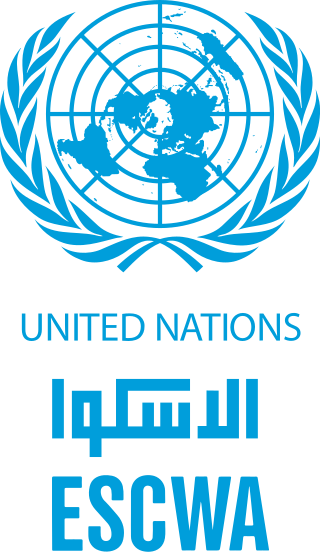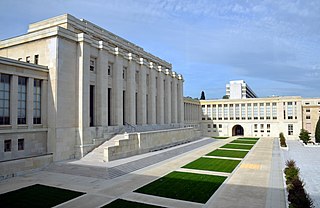
Human rights are universally recognized moral principles or norms that establish standards of human behavior and are often protected by both national and international laws. These rights are considered inherent and inalienable, meaning they belong to every individual simply by virtue of being human, regardless of characteristics like nationality, ethnicity, religion, or socio-economic status. They encompass a broad range of civil, political, economic, social, and cultural rights, such as the right to life, freedom of expression, protection against enslavement, and right to education.

The United Nations (UN) is an intergovernmental organization aiming to maintain international peace and security, developing friendly relations among nations and countries, achieving international cooperation, and serving as a centre for coordinating the actions of member states. It is widely recognized as the world's largest international organization. The UN is headquartered in New York City, in international territory with certain privileges extraterritorial to the United States, and the UN has other offices in Geneva, Nairobi, Vienna, and The Hague, where the International Court of Justice is headquartered at the Peace Palace.

The United Nations General Assembly is one of the six principal organs of the United Nations (UN), serving as its main deliberative, policymaking, and representative organ. Currently in its 79th session, its powers, composition, functions, and procedures are set out in Chapter IV of the United Nations Charter.

The United Nations Economic and Social Council (ECOSOC) is one of the six principal organs of the United Nations, responsible for coordinating the economic and social fields of the organization, specifically in regards to the fifteen specialized agencies, the eight functional commissions, and the five regional commissions under its jurisdiction.
The United Nations Commission on Human Rights (UNCHR) was a functional commission within the overall framework of the United Nations from 1946 until it was replaced by the United Nations Human Rights Council in 2006. It was a subsidiary body of the UN Economic and Social Council (ECOSOC), and was also assisted in its work by the Office of the United Nations High Commissioner for Human Rights (UNOHCHR).

The Charter of the United Nations (UN) is the foundational treaty of the United Nations. It establishes the purposes, governing structure, and overall framework of the UN system, including its six principal organs: the Secretariat, the General Assembly, the Security Council, the Economic and Social Council, the International Court of Justice, and the Trusteeship Council.

The United Nations Human Rights Council (UNHRC) is a United Nations body whose mission is to promote and protect human rights around the world. The Council has 47 members elected for staggered three-year terms on a regional group basis. The headquarters of the Council are at the United Nations Office at Geneva in Switzerland.

The United Nations Economic and Social Commission for West Asia is one of five regional commissions under the jurisdiction of the United Nations Economic and Social Council. The role of the Commission is to promote economic and social development of Western Asia through regional and subregional cooperation and integration.

The Group of Western European and Other States, also known as the Western European and Other States Group or WEOG, is one of the five United Nations regional groups and is composed of 28 Member States mainly from Western Europe, but also from North America, the Eastern Mediterranean, Fennoscandia and Oceania.

The United Nations Regional Groups are the geopolitical regional groups of member states of the United Nations. Originally, the UN member states were unofficially organized into five groups as an informal means of sharing the distribution of posts for General Assembly committees. Now this grouping has taken on a much more expansive and official role. Many UN bodies are allocated on the basis of geographical representation. Top leadership positions, including Secretary-General and President of the General Assembly, are rotated among the regional groups. The groups also coordinate substantive policy and form common fronts for negotiations and bloc voting.

The United Nations Permanent Forum on Indigenous Issues is the UN's central coordinating body for matters relating to the concerns and rights of the world's indigenous peoples. There are more than 370 million indigenous people in some 70 countries worldwide.

An international organization, also known as an intergovernmental organization or an international institution, is an organization that is established by a treaty or other type of instrument governed by international law and possesses its own legal personality, such as the United Nations, the World Health Organization, International Union for Conservation of Nature, and BRICS. International organizations are composed of primarily member states, but may also include other entities, such as other international organizations, firms, and nongovernmental organizations. Additionally, entities may hold observer status.
The Holy See is not a member of the United Nations but was granted permanent observer state status on 6 April 1964. In that capacity, it has the right to attend all sessions of the United Nations General Assembly, the United Nations Security Council, and the United Nations Economic and Social Council to observe their work. Accordingly, the Holy See has established permanent observer missions in New York and in Geneva and has been able to influence the decisions and recommendations of the United Nations.

The Group of African States, or African Group, is one of the five United Nations regional groups and is composed of 54 Member States from the African continent. The African Group is the largest regional group, and compose 28% of all United Nations members.

The Group of Eastern European States (EEG) is one of the five United Nations regional groups and is composed of 23 Member States from Eastern, Central and Southern Europe.

The European Union (EU) has permanent observer status at the United Nations (UN) since 1974, and gained enhanced participation rights in 2011. The EU itself does not have voting rights but it is represented alongside its 27 members, one of which, France, is a permanent member of the Security Council.

The Group of Latin America and Caribbean Countries, or GRULAC, is one of the five United Nations Regional Groups composed of 33 Member States from Central and South America, as well as some islands in the West Indies. Its members compose 17% of all United Nations members.

The Group of Asia and the Pacific Small Island Developing States is one of the five United Nations regional groups and is composed of 54 Member States from Asia and Oceania.









